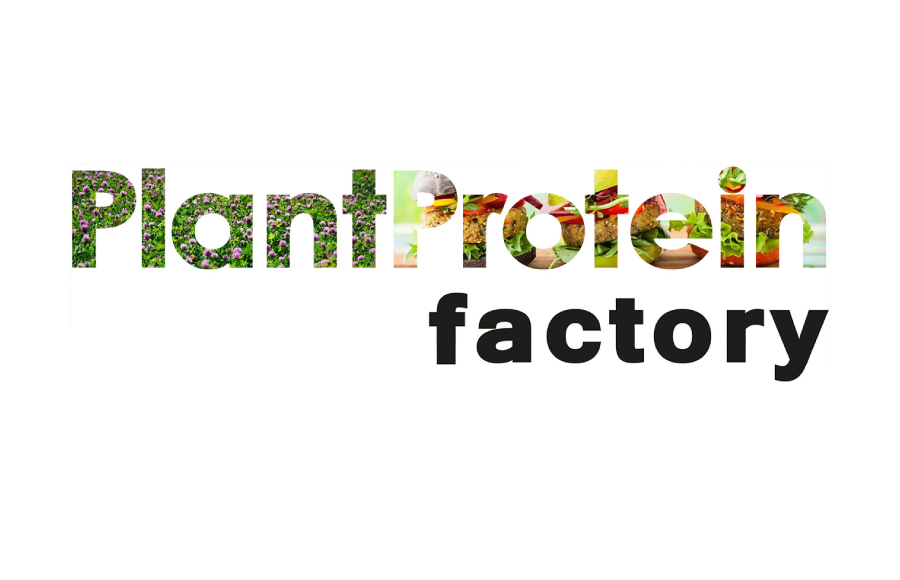
The Plant Protein Factory – new green raw-material supplier
In the Plant Protein Factory the aim is to become a raw-material supplier of plant proteins. The first stage involves extracting proteins from plant tops, plant parts and other green plant material that is not currently used but remains in the fields after the harvest. The technology exists. The challenge is to scale up and develop the process – and make it profitable.
Finding new sources of protein and making better use of the resources we have is an important issue for the future. There are many challenges – not least for agriculture. Finding new green sources of protein is part of that adjustment. Reducing livestock production is another.
"Many people are now already choosing to reduce their consumption of meat and choose other products, e.g. soya beans, which we currently import in large quantities from South America. We’re also growing more legumes than before, and are trying other options. But we’re not looking after the protein-rich green plant material, and we wish to change that," says Carl Jonson, Senior Innovation & Business Advisor SLU Holding.
Carl and Prof. Eva Johansson and Bill Newson PhD from the Department of Plant Breeding at SLU in Alnarp is behind the idea and the development work at the Plant Protein Factory.
A use for the neglected green plant material
The unused green plant material that will be tested at the Plant Protein Factory includes the tops from beets and carrots, kale, parts of broccoli, clover and alfalfa. The process involves extracting proteins and other plant nutrients. The green plant material is first washed, after which a ‘smoothie’ is made. After separating off the lignin and fibres one is left with a green juice, and it is from this juice that the project will involve extraction of proteins and nutrients in several stages. The fibre and wood fraction will then be used for biogas production.
“The green juice is our hard currency – the new green raw material around which we hope the Plant Protein Factory will be able to build its business. Our assessment is that there are many applications for potent green raw material. For the food industry, development of new vegetarian and vegan options grown at home is a new opportunity. Another interesting application is the cosmetics industry, where the raw material can be used for development of new natural emulsions and creams,” says Carl.
More for farmers and more efficient biogas
New opportunities will also be opened up for agriculture when the green plant material in the fields is in demand.
“The fact that plant proteins are locally produced will be of particular interest, and for farmers this is an opportunity to make money from the peas, broccoli, beets they have grown and then also be able to sell the residual products that are currently just left in the fields,” Carl explains.
Another interesting application for the new green raw material is the energy sector, in which collaboration between the Plant Protein Factory and Gasum on the creation of new and more efficient business models for the biogas industry is already underway.
Vinnova and Region Skåne also see "plant proteins as an area with great potential", and have shown an interest in the Plant Protein Factory and the development work that is in progress by investing in the project.
Important pioneering project
“It means a lot that there are several of us who believe in the possibility of developing new plant proteins and are supporting our work on extraction of high-value protein. With the Plant Protein Factory we’re pioneers in the area. No-one has previously used green plant material as a raw material, and neither has anyone tried to extract high-value protein from what’s left in the fields,” says Carl.
At the Plant Protein Factory the work continues. They’re still at an early stage. The technology exists, and the challenge is now to scale up the business.
“It’s an important project, and a difficult one too. The difficulty is primarily creating profitability and demonstrating the business potential with the ten or so market players involved in the project. The technology exists, and to some extent the process is in place. We’ll now see how it’s to be done, and how we can scale the process up and make it profitable. Swedish research has a high international ranking, but is in last place when it comes to commercialising the results. We’ll change that," says Carl Jonson, Senior Innovation & Business Advisor, SLU Holding.
For more information on the Plant Protein Factory and SLU Holding please contact
This email address is being protected from spambots. You need JavaScript enabled to view it., Senior Innovation & Business Advisor, SLU Holding
+46 (0) 72 211 75 77


